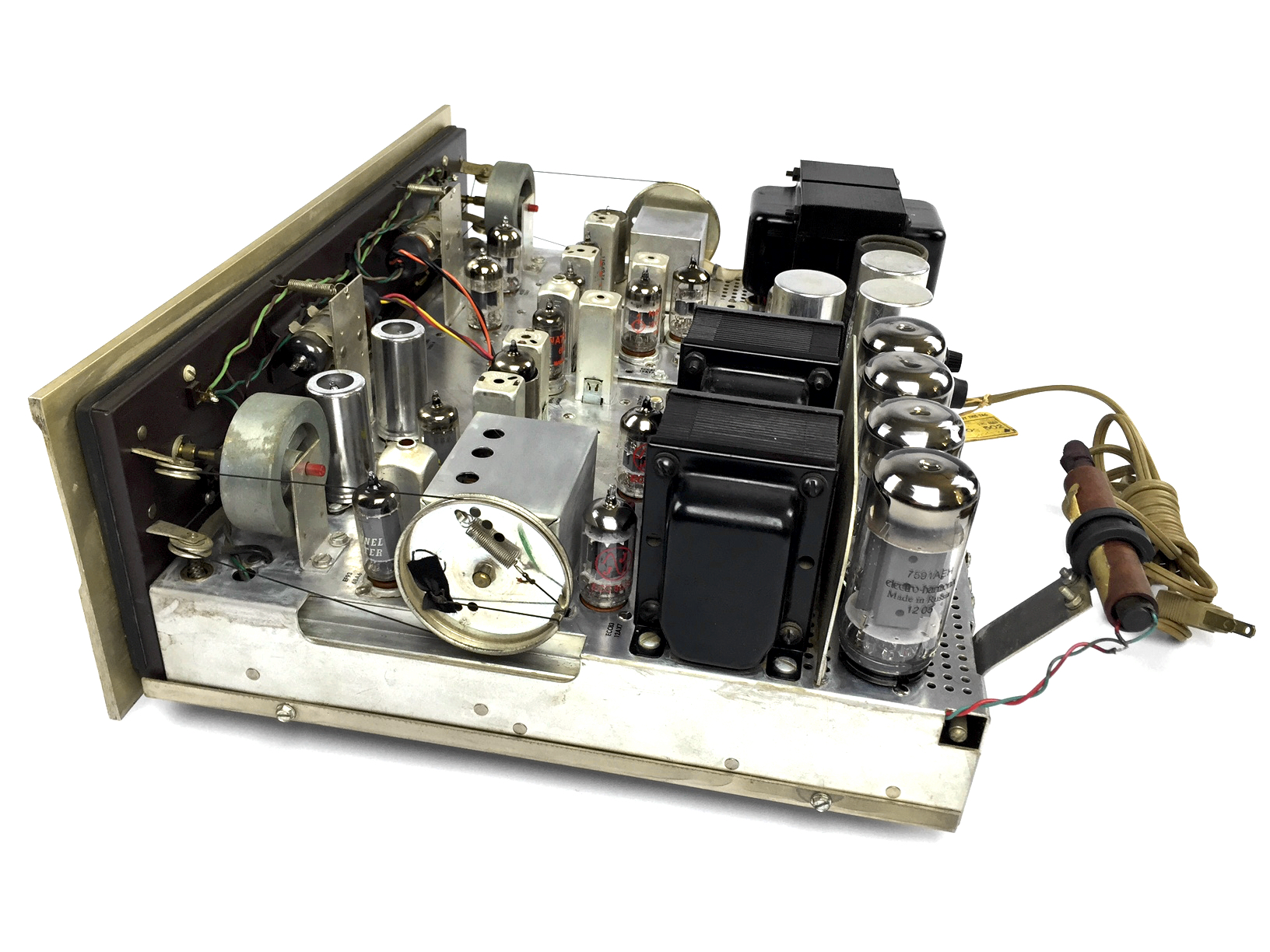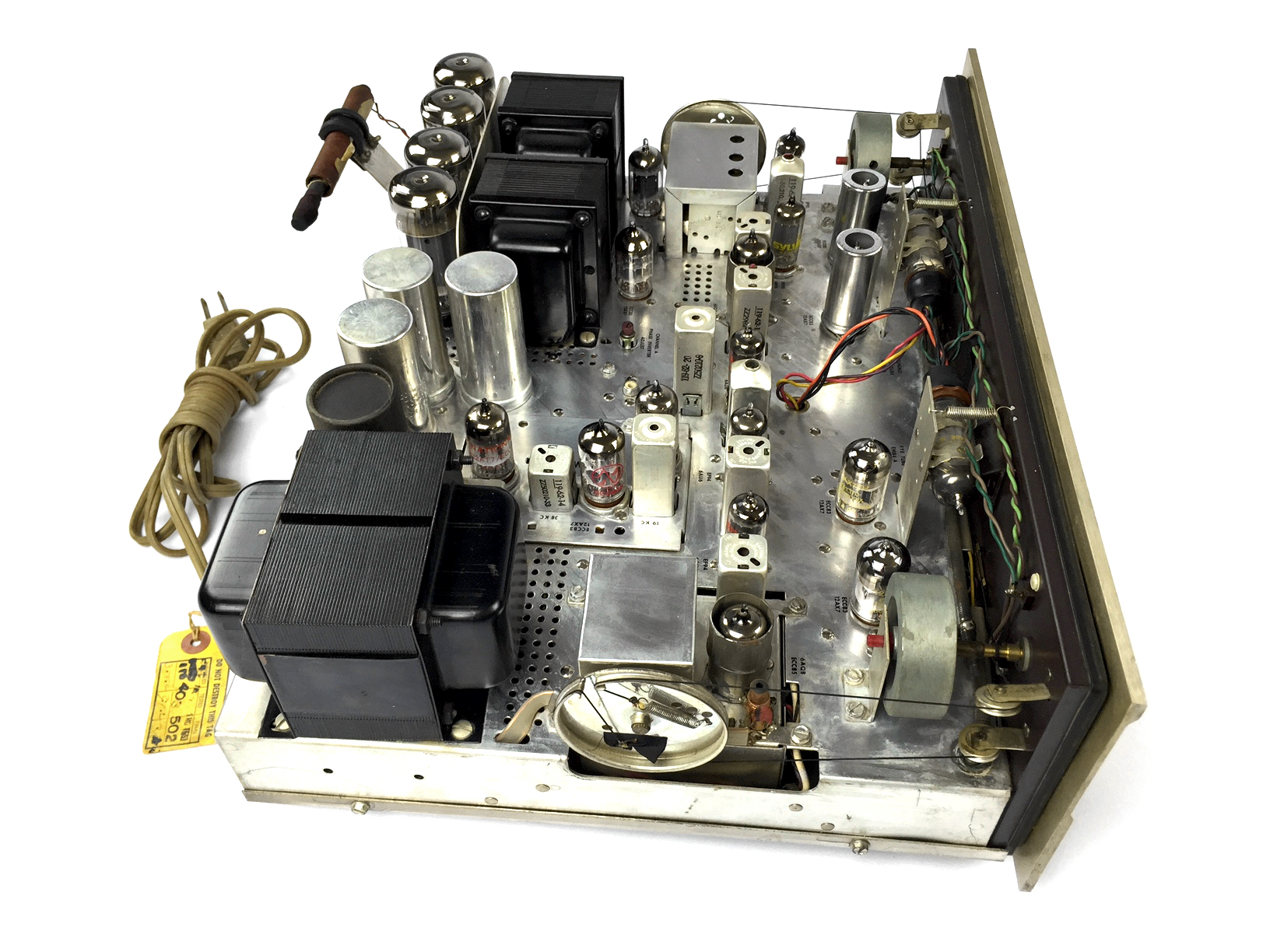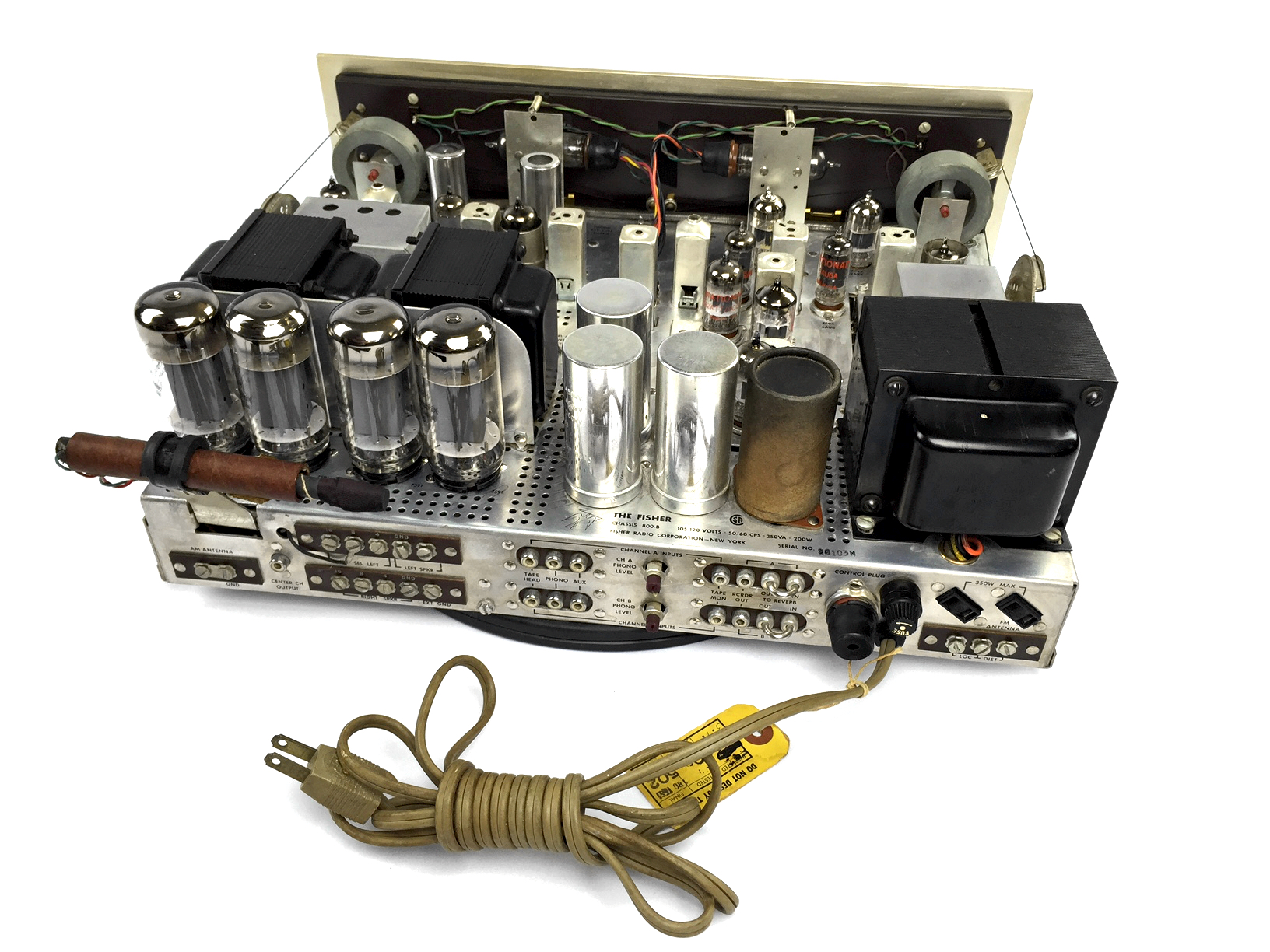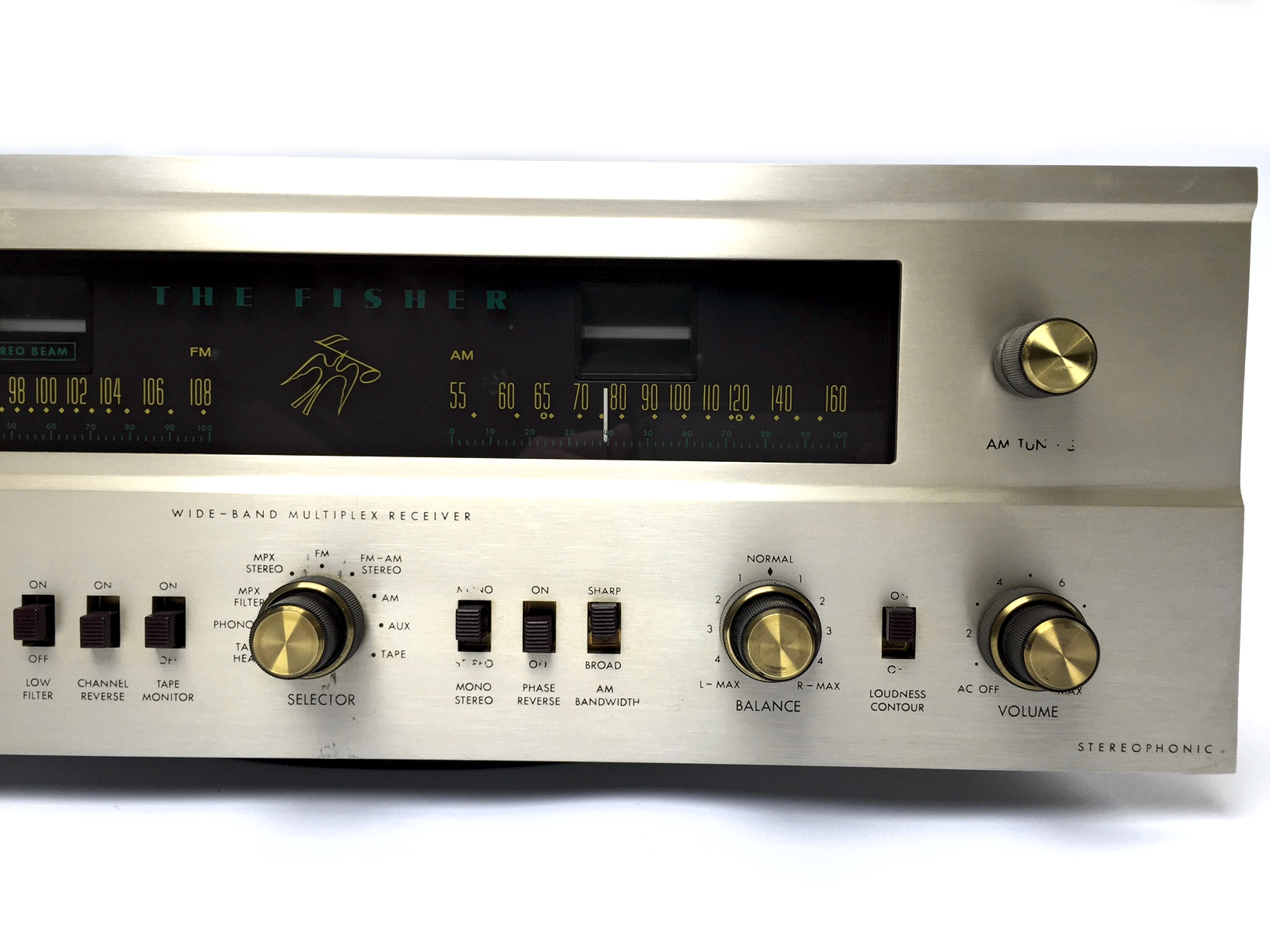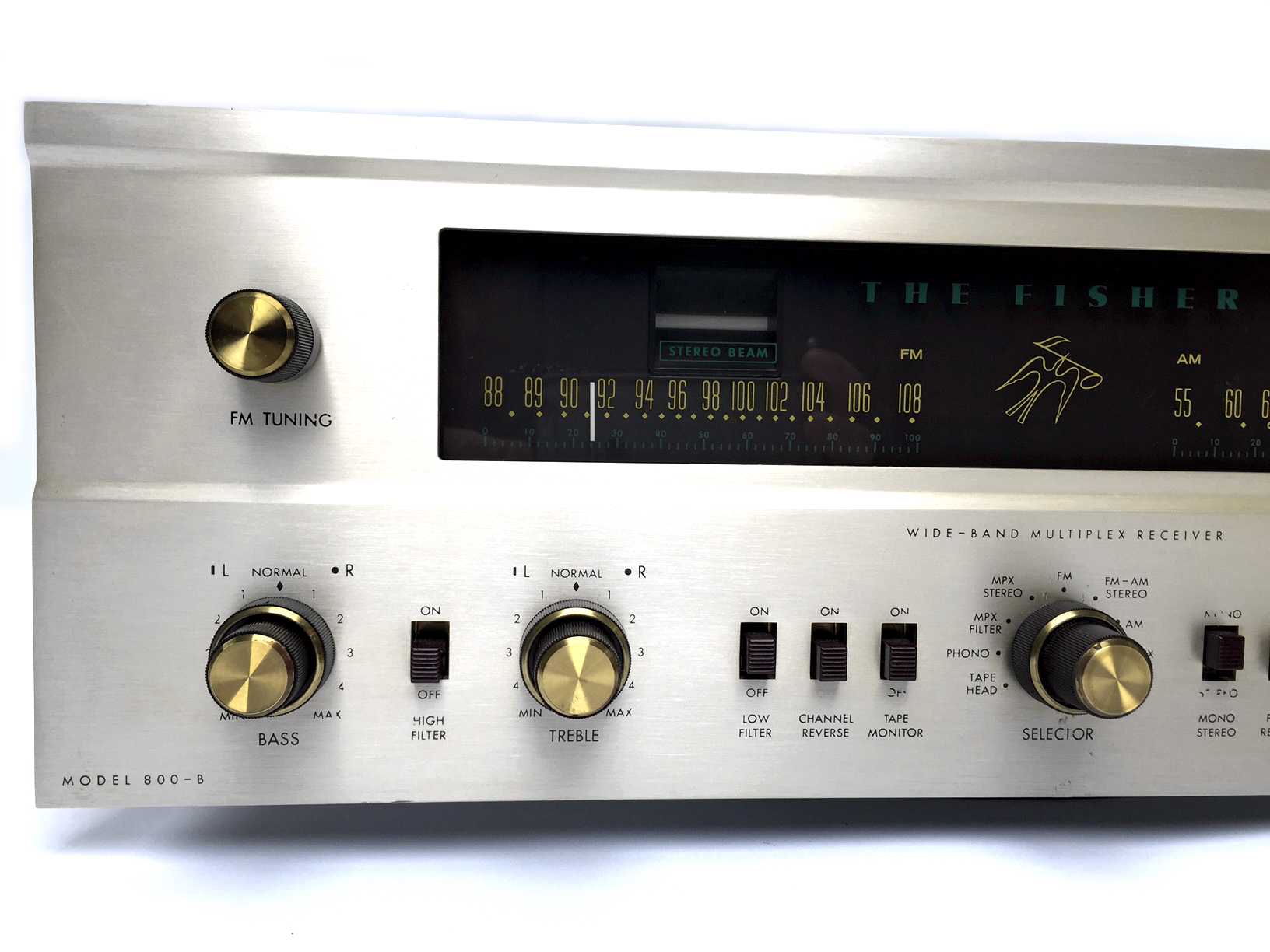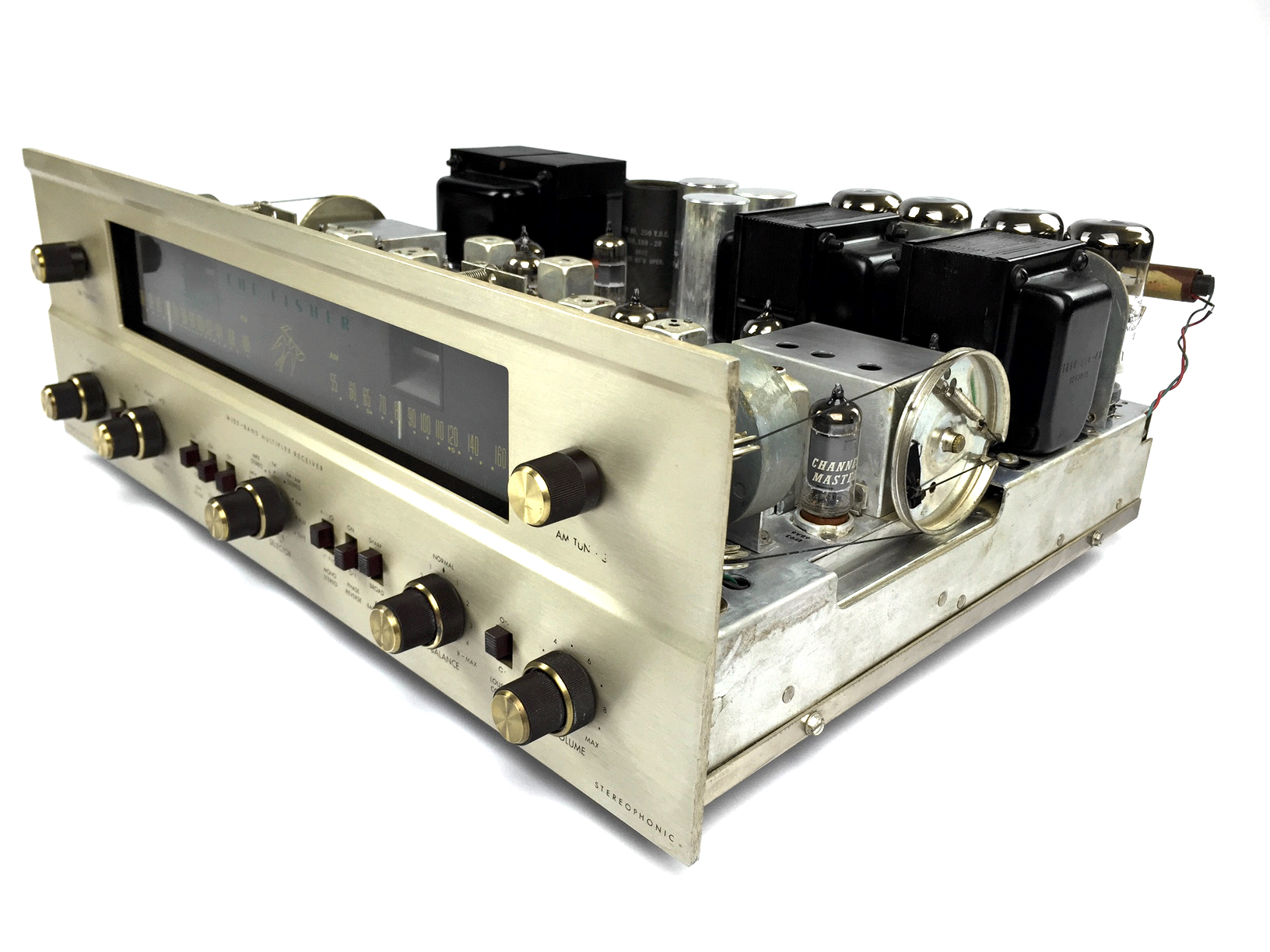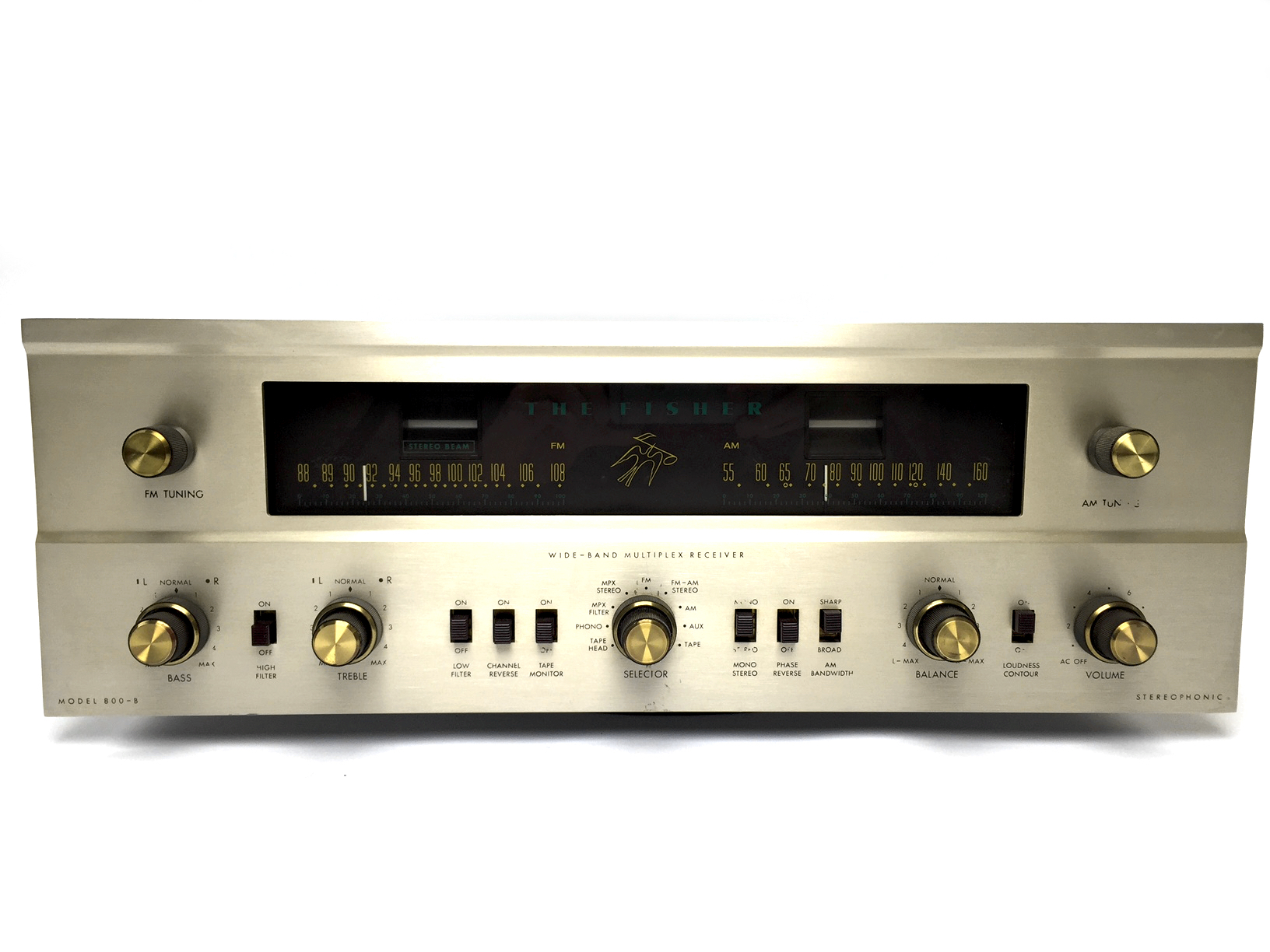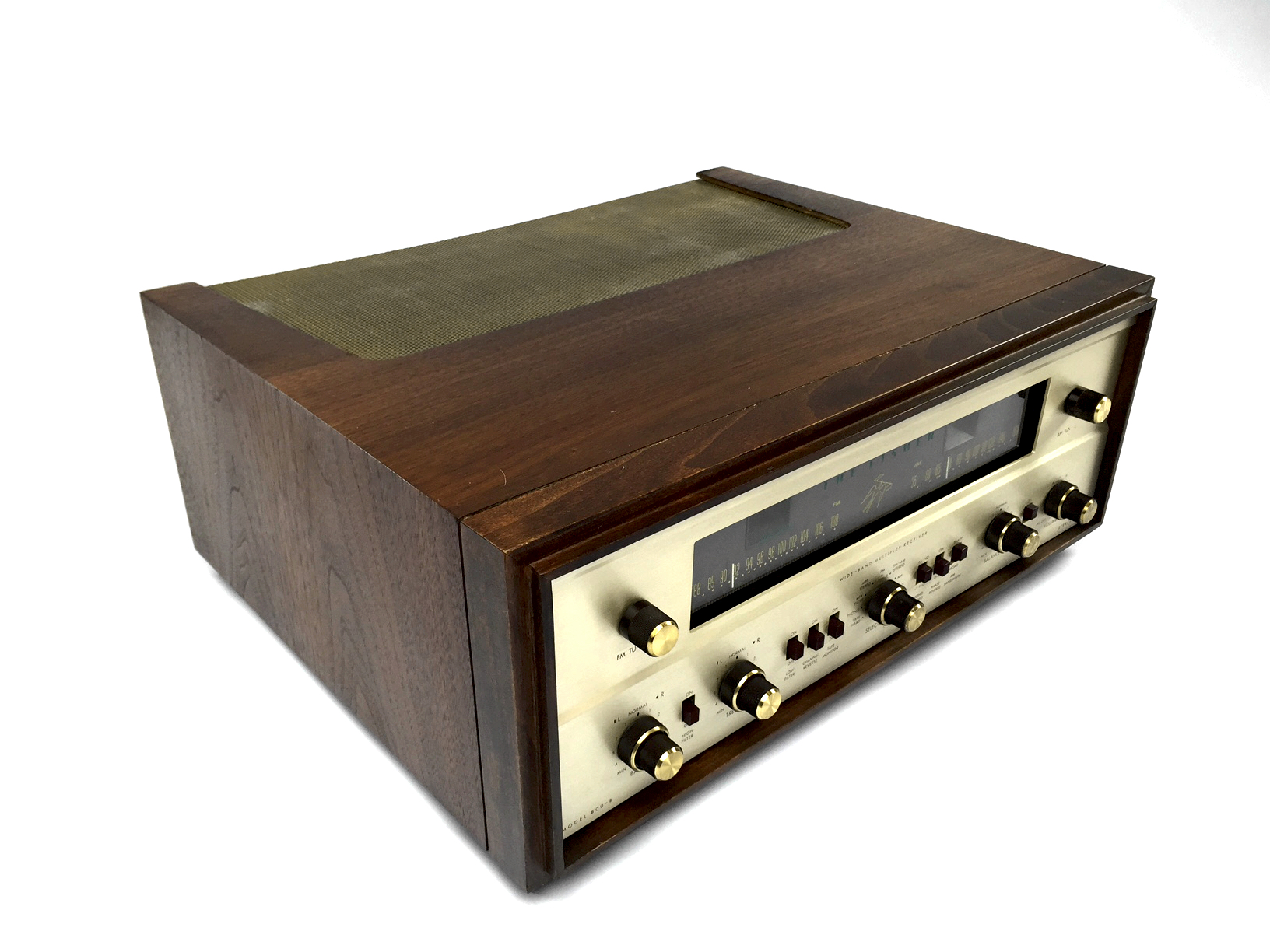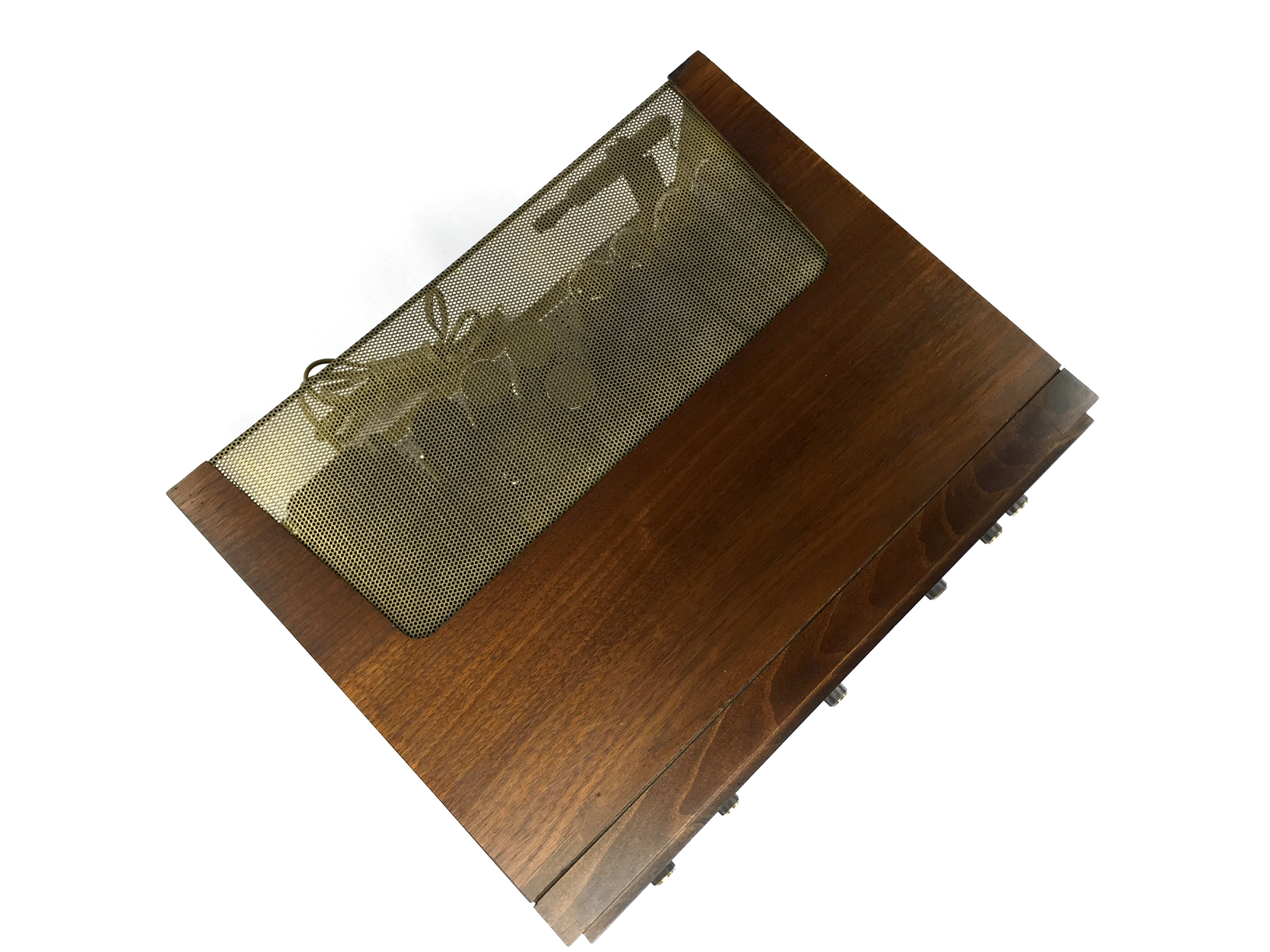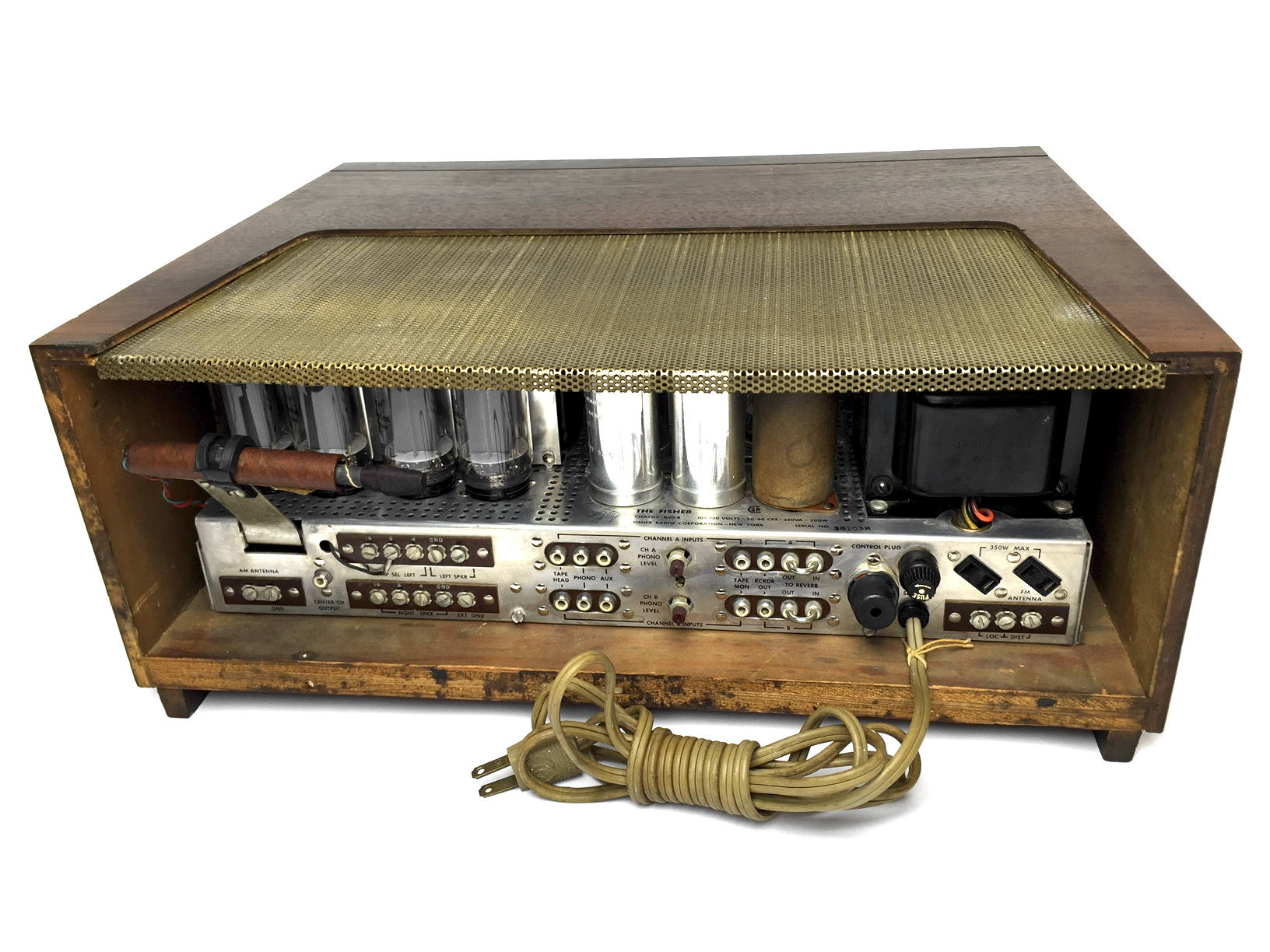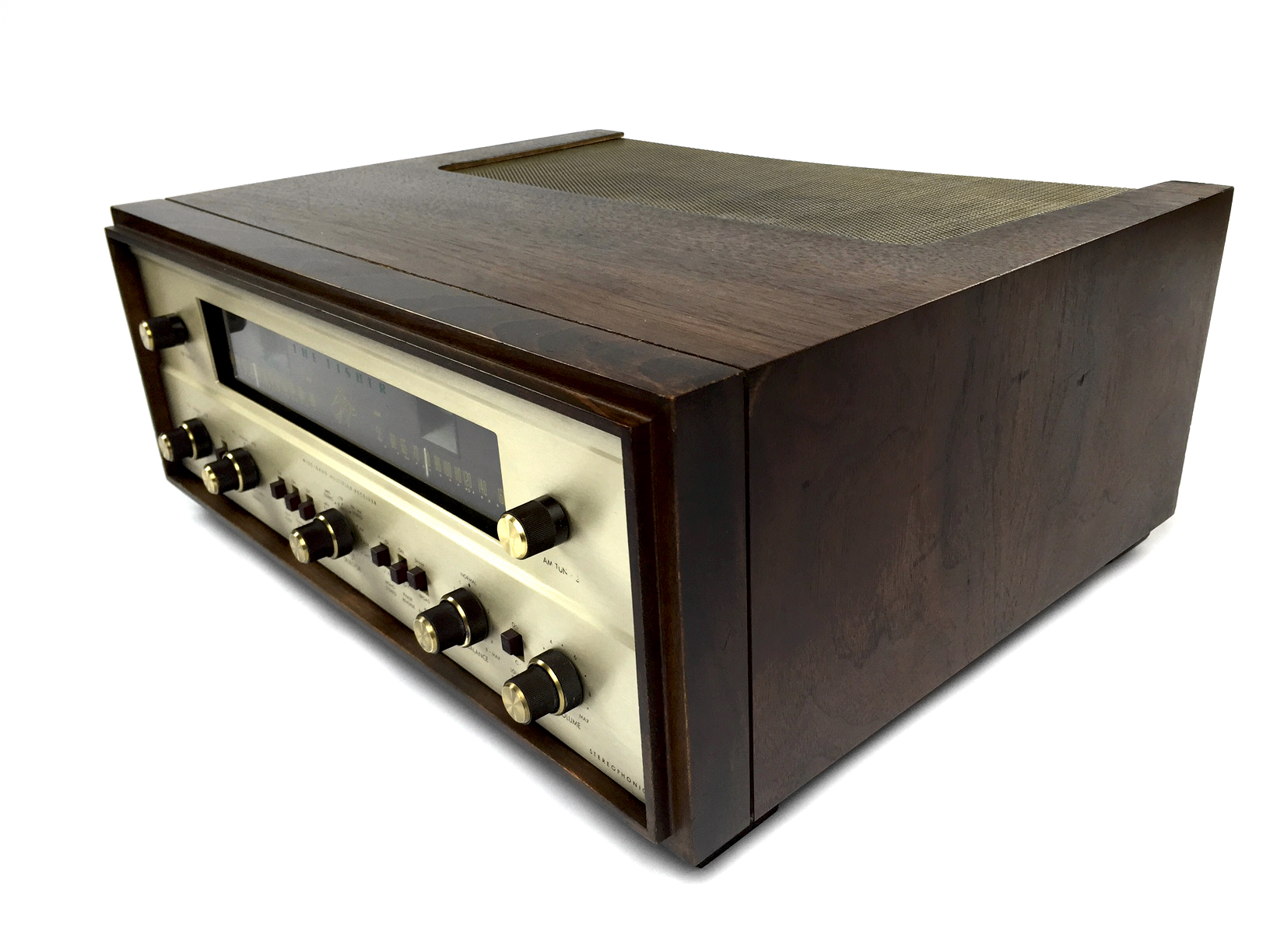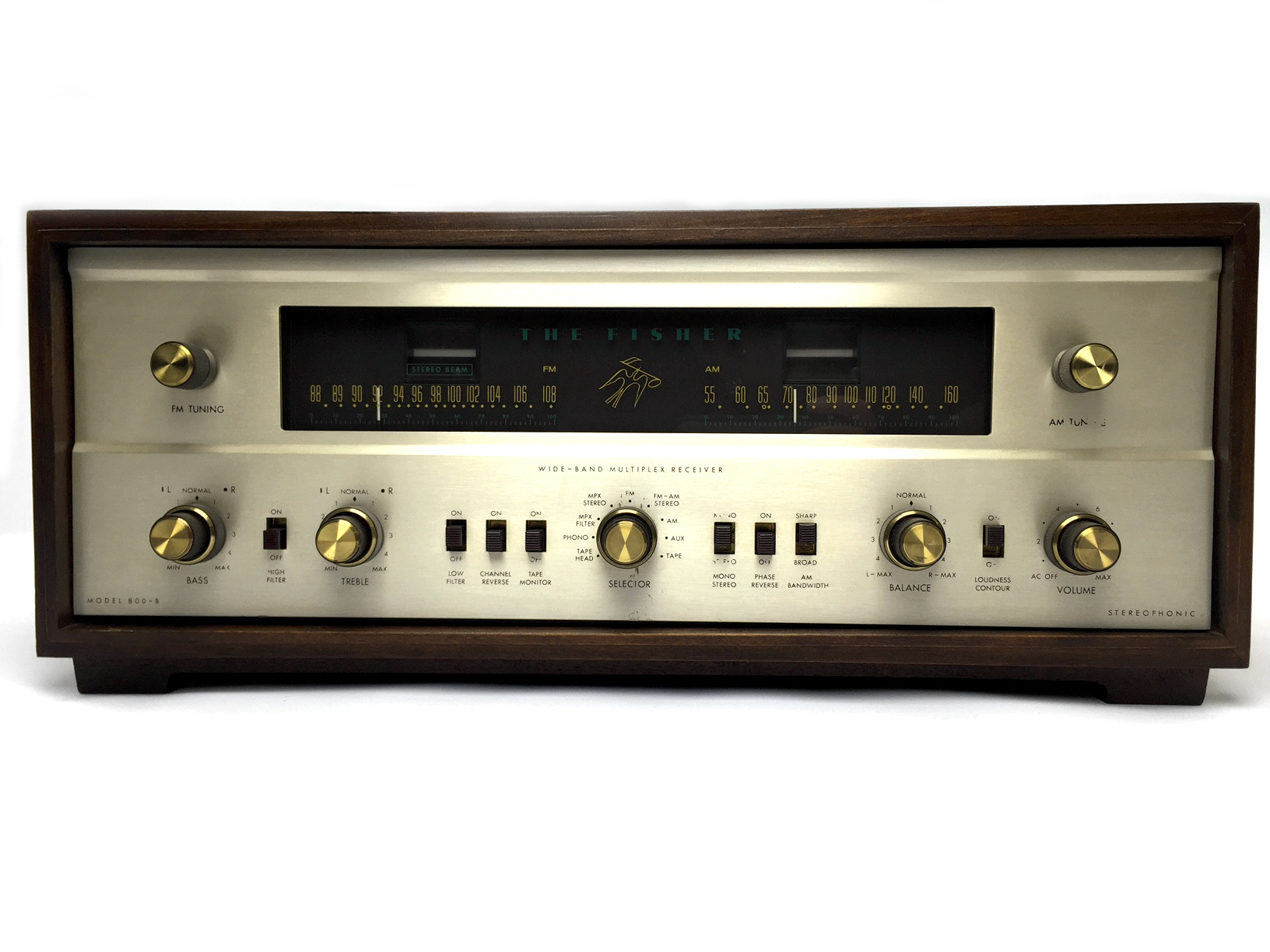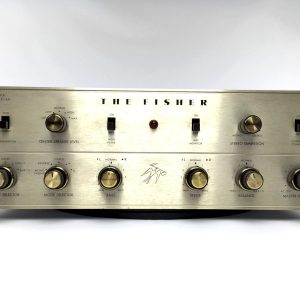Fisher 800-B – Gold Restoration [SOLD]
$1,300.00
Many prefer the 800-B’s sound over the more common 800-C. And with two of the famous “magic eye” tuning indicators, the 800-B is a superb piece of retro technical art. Its FM receiver is also one of the best ever built, with sensitivity and signal quality that surpasses almost all modern receivers.
Out of stock
Description
A Gold Level Fisher 800-B restoration with its original American Walnut cabinet.
- Faceplate, Knobs and Chassis cleaned, hand polished, and silicon sealed
- All resistors and capacitors checked and replaced/upgraded where necessary – 14 resistors and 22 capacitors were replaced using top-of-the-line “audiophile quality” components including rare polystyrene capacitors in the phono preamp stage.
- Inrush current limiting and non-polarized polypropylene
film capacitors have been added to the power supply - Output tube bias circuitry upgraded with
precision resistors and modern polypropylene bypass capacitors - All switches and controls were cleaned and lubricated
- All switch contacts were hand burnished
- Tubes replaced with thoroughly tested matched-pairs (see above)
- FM and AM receivers critically aligned and tested to meet all original specs
- Audio amplifier driver balance and output stage bias circuit critically aligned
- All controls tested and confirmed to function perfectly
- Sound quality is superb, with a fully detailed soundstage

View the full Performance Report of this receiver
This video also provides a brief tour of the ‘business-end’ of our listening room, along with our A/B switching setup. The large screen is displaying our patent-pending real time spectrum display comparing the input signal and output signals while the amplifier plays music.
Our unique computer analysis measurement system allows AEA to not only measure the performance of amplifiers while they are playing music; it allows us to “see” why one amp sounds different than another, and use that insight in designing each stage of the amplifier. The results speak for themselves. Or should we say, “sing for themselves.”



